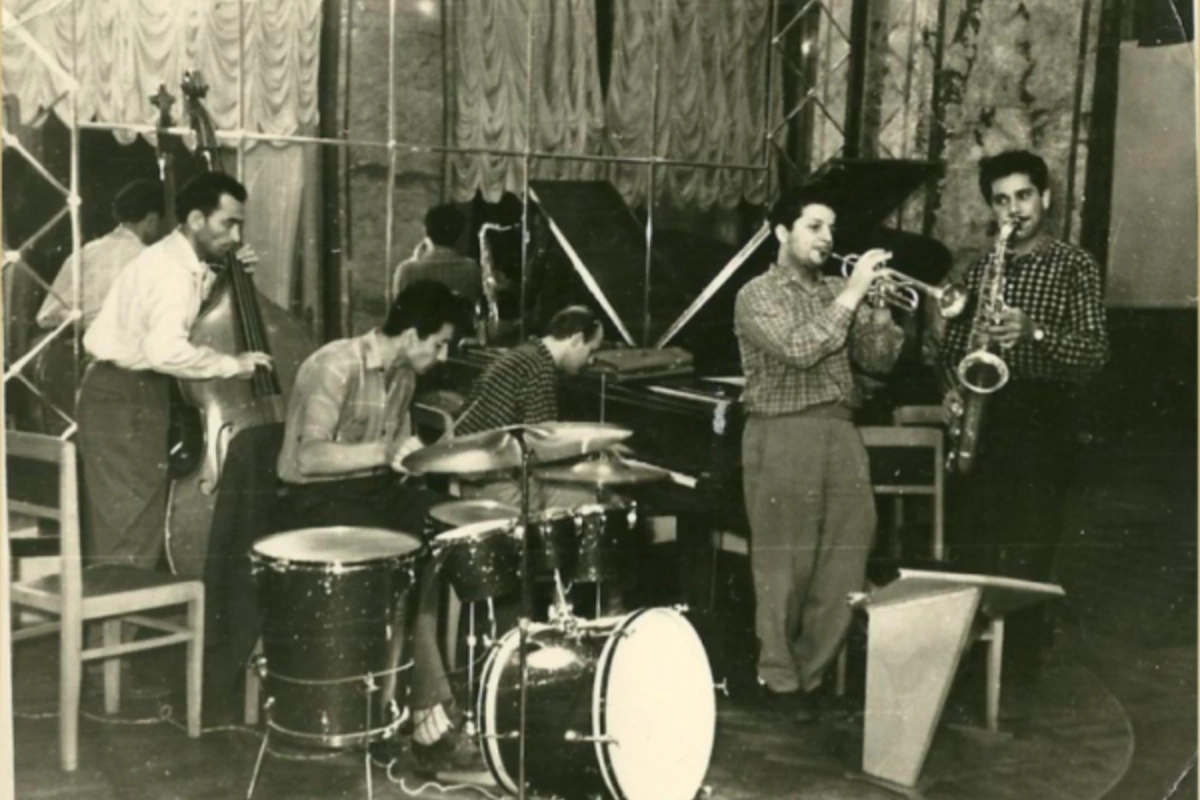
It was jazz infused with an oriental ornament, a sound unique to Azerbaijan, with its complex eastern melisma, contrasting rhythms, improvisational in nature, yet following a set of rules - it sounded unlike anything else in the world.
The resident jazz band of “Friendship Restaurant," Baku 1962. Photo: https://www.ourbaku.com/
A crowd of twenty-somethings dance to the DJ's beat at a crimson-lit nightclub in Baku. It's an ordinary Boiler Room party, a popular London-based underground music broadcaster that hosts live performances worldwide, that's paying a visit to the city. Except the electronic music that fills this particular space is fused with a genre not customarily played at Electronic Dance Music (EDM) raves. It's Azerbaijani mugham - a traditional folk-art form that is said to be rooted in the ancient Zoroastrian hymns or the Muslim call to prayer. The DJ is the brilliant contemporary musician Isfar Sarabski, a classically-trained pianist and winner of the 2009 Montreux Jazz Festival. The unique sound he's developed is extraordinary. It is precisely this cross-fertilization of apparently disparate musical traditions that has maintained the creative spark for a century of jazz in Azerbaijan, a chameleon-like genre showing remarkable resilience in the face of both Soviet suppression and changing fashions.

The year was 1922 - the dawn of the Jazz Age in America. This relatively new musical genre was spilling over the Atlantic into European cities and further towards the East. The onslaught of jazz music brought with it a fresh new sound and a spirit of freedom that percolated through a generation. It had been two years since the Bolsheviks took over the briefly independent Azerbaijan Democratic Republic. The claws of totalitarianism hadn't fixed themselves over the country just yet. Soon enough, they would crush the budding careers of musicians for the crime of playing foreign music. Repressions, cancellations, and even executions would follow Stalin's rule, but for now, Baku was dazzled by jazz music.
Repressions, cancellations, and even executions would follow Stalin's rule, but for now, Baku was dazzled by jazz music.
New jazz orchestras popped up in tiny theatres, and groups performed ragtime at a local cabaret called the Chertova Perechnitsa (Russian for "the Devil's Pepper Shaker"). That cabaret attracted a satirical poem in the August 15, 1922 issue of a local communist newspaper, Bakrabochiy. Just two months before, on June 20, 1922, that very same paper had announced an evening show called "Black Betsy" at a Baku performance theatre called Chat Sauvage, located on 18 Molokan Street (today renamed Khagani Street).
By the 1930s, jazz was already part of Baku's urban culture, with crowds eager to feel a connection with the imported spirit of New Orleans. The genre went from strictly a reproduction of American music to acquiring a localized undertone. By 1939 the Azerbaijani music luminaries Tofiq Quliev and Niyazi had founded the Azerbaijani State Jazz Orchestra. A few years later, it would be turned into a military band following the Nazi invasion of the Soviet Union.
One of the pioneers of American improvisational jazz in Azerbaijan was a young clarinet and saxophone player named Parviz Rustambekov. At 18, he was attracting large crowds to his performances. His contemporaries marvelled at his "unusual sense for improv." Though yearning to play the saxophone, that instrument was considered a product of "western corruption," so initially, he learned the more socially acceptable clarinet. But his talent came to the notice of the great Uzeyir Hajibeyov, a man who'd come to be known as the father of classical music in Azerbaijan. Hajibeyov used his contacts to find a saxophone for the young man to realize his dream. Rustambekov practiced at home and then played for small crowds, popularizing the concept of jazz openers at Baku's movie theatres. This fusion would become the country's cultural hallmark in the years ahead.
While Parviz was gaining unprecedented popularity amongst Baku's jazz crowd and the wider Soviet Union, the Kremlin was organizing art censorship in Azerbaijan. Although deemed "corrupt" and "immoral" from the onset of its popularity, not until the mid-1930s did the Soviet authorities begin actively controlling musicians.
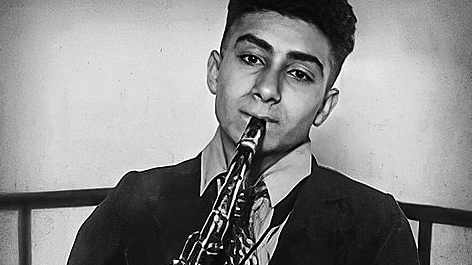
Meanwhile, in a different Bakuvian social circle, a woman was diligently laying the foundation for Azerbaijani jazz-mugham. The woman in question was Khadija Gayibova, a co-founder of the Azerbaijani National Conservatory (together with Uzeyir Hajibeyov) and the first pianist ever to play mugham on the classical piano. By the mid-30s, Soviet policies were attempting to Russify the Turkic ethnic minorities in the South Caucasus and Central Asia. Yet, Khadija managed to do crucial work in rediscovering and preserving mugham traditions during Stalin's repressions. The musical evenings she hosted at her house to revitalize Turkic musical traditions began to cause suspicion in the Soviet high government. In 1938, Lieutenant Tevosyan from the State Security Department accused Khadija of espionage. She was shot after a 15-minute trial on March 17, 1938.
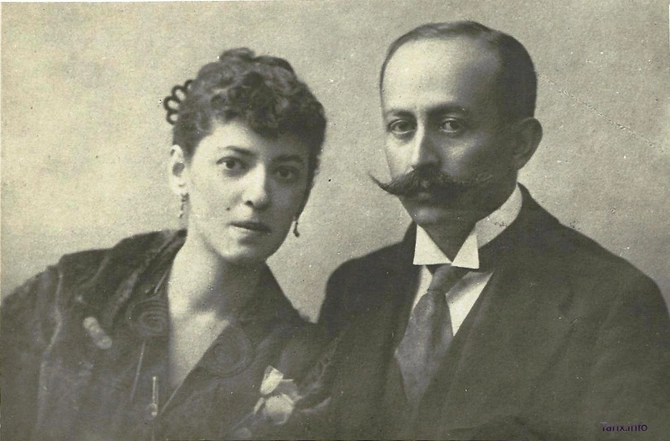
A similar fate would strike Parviz Rustambekov a decade later. He had survived WW2 and, grown to be considered 'the Soviet Benny Goodman' during the brief post-war cultural thaw. He had toured the USSR as part of the sensationally popular Eddie Rosner jazz orchestra, and his fame was such that he contemplated an offer to tour the United States. However, in 1949 came another clamp-down. The Soviets first dismantled the band, and Eddie Rosner was sent to a labour camp. Parviz returned to Baku, where he was reduced to playing tiny venues near the train station. The crowds had gotten smaller, more apprehensive, but for a while, people still risked coming to watch. It wasn't long before he was sentenced to 15 years of prison at the age of 27. He was later found dead in his cell under mysterious circumstances.
By 1945 foreign jazz bands were banned from performing in the Soviet Union. The local bands were largely left alone, though frowned upon and decried an undesirable part of society. The phrase "Today he plays jazz, tomorrow he'll betray his country" became a common propaganda slogan. Despite it all, the music lived on. At small gatherings in communal apartments, through foreign radio stations and illegally traded bone music recordings - makeshift records that were etched onto used X-Ray plates to evade the authorities - jazz stuck around through those who fell in love with it.
The two men who would build on the largely clandestine history of the genre would be Vagif Mustafazade and Rafik Babayev. Vagif Samedoglu, son of the great Azerbaijani poet Samed Vurgun, remembers spending hours at his friend Vagif Mustafazade's house in the 50s, trying to catch a whiff of BBC's jazz broadcasts on shortwave. It certainly wouldn't have been heard on national television in those days. There was no way to record music from the radio at the time, so after hearing a particular song by Ella Fitzgerald, Bill Evans or Duke Ellington, Vagif would jump up from his radio and reproduce the sound on his piano. "He had an incredible ear for music," Samedoglu wrote. They'd catch glimpses from foreign movies and then rush home to solidify them in their memory. Though the era of formal repressions had passed, the system's fight against 'capitalist influences' continued. In 1957, Vagif's concert at a Baku school was cancelled when they learned of his intention to play a jazz piece. Samedoglu described him as unsettled, always searching for something.
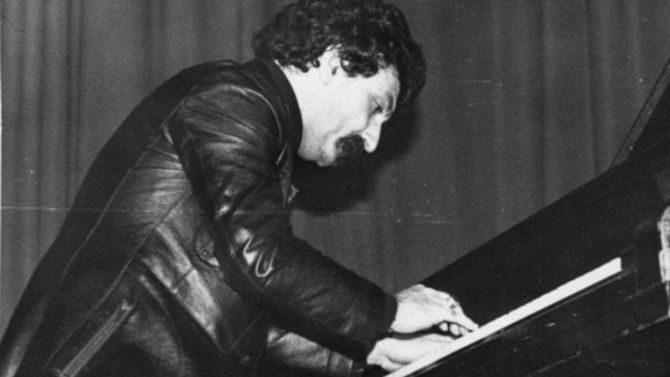
"He began living with this obsession. It was a mystery to him," Samedoglu wrote. Over time that unsettledness gave birth to a new genre of music. Mustafazade's "sunlit, small, cozy" second-floor apartment in the Old City - a large formerly oil-boom era home that the Soviets partitioned to fit more residents - became the birthplace of Azerbaijani jazz-mugham. Khadija Gayibova planted the seed in the 1930s, and it continues today in Isfar Sarabski's contemporary work. It was jazz infused with an oriental ornament, a sound unique to Azerbaijan, with its complex eastern melisma, contrasting rhythms, improvisational in nature, yet following a set of rules - it sounded unlike anything else in the world.
By the 60s, Baku was brimming with jazz music again. Previously unheard of, its festivals were being formally hosted across the USSR. Vagif became somewhat of a living legend in Soviet music circles. Willis Conover, the renowned host of Voice of America's 'Jazz Hour' program, heard Vagif perform at the Tallinn Jazz festival and was mesmerized. "It's impossible to identify his equal. He is the most lyrical pianist I have ever known."
"It's impossible to identify his equal. He is the most lyrical pianist I have ever known."
In 1967 the first Jazz festival, The Golden Autumn, was hosted in Baku's open-air Green Theatre and would go on into the mid-70s. Vagif's daughter Aziza Mustafazade, now a world-renowned jazz musician in her own right, has described how the system would try to tone him down and restrict him. Aziza, whom Vagif fondly nicknamed Jaziza, remembers how KGB members called him back from a flight to Finland, citing some family emergency, to prevent him from going on tour. They scheduled a concert for him in Tashkent's Muslim-majority city during Ashura, a religious period of mourning. It was obvious that people wouldn't show up. "They tried to shame him. It broke the lives and hearts and careers of so many people," Aziza said in an interview in the 1990s.
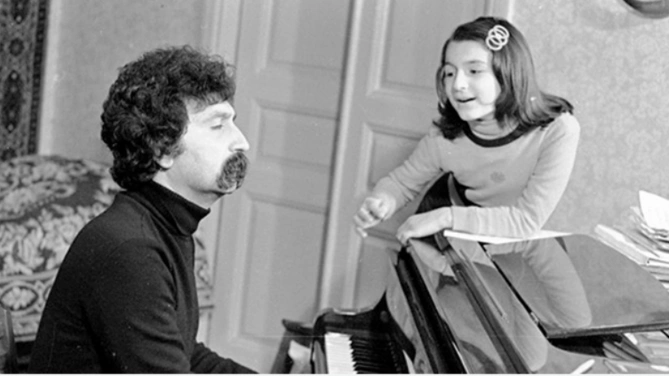

Bottom: Isfar Sarabski again. He’s better known as a pianist than a DJ (used with permission).
It was directly after that concert in Tashkent that Vagif passed away from a heart attack at just 39. The jazz world went into mourning but gained a legacy that continues to build, as if Vagif Mustafazade had left behind him a spirit of living jazz. Vakhtang Kikabidze, a Soviet-era Georgian artist, said in a

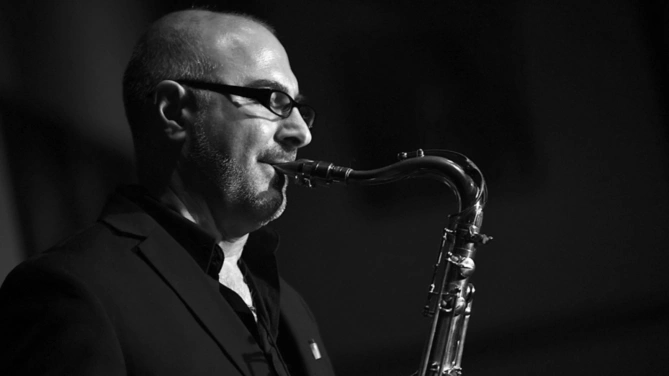
Today's Azerbaijani contemporary jazz musicians like Elchin Shirinov, Ruslan Agababayev, Isfar Sarabski, Emil Afrasiyab and Shahin Novrasli, together with the renowned Rain Sultanov, Salman Gambarov, Vagif Aliyev and many more, can build on the wealth of the jazz-mugham heritage; to fuse it with newer genres, improvise, and perform on the world stage while honouring the memory of those who walked the difficult path before them.
Share on social media